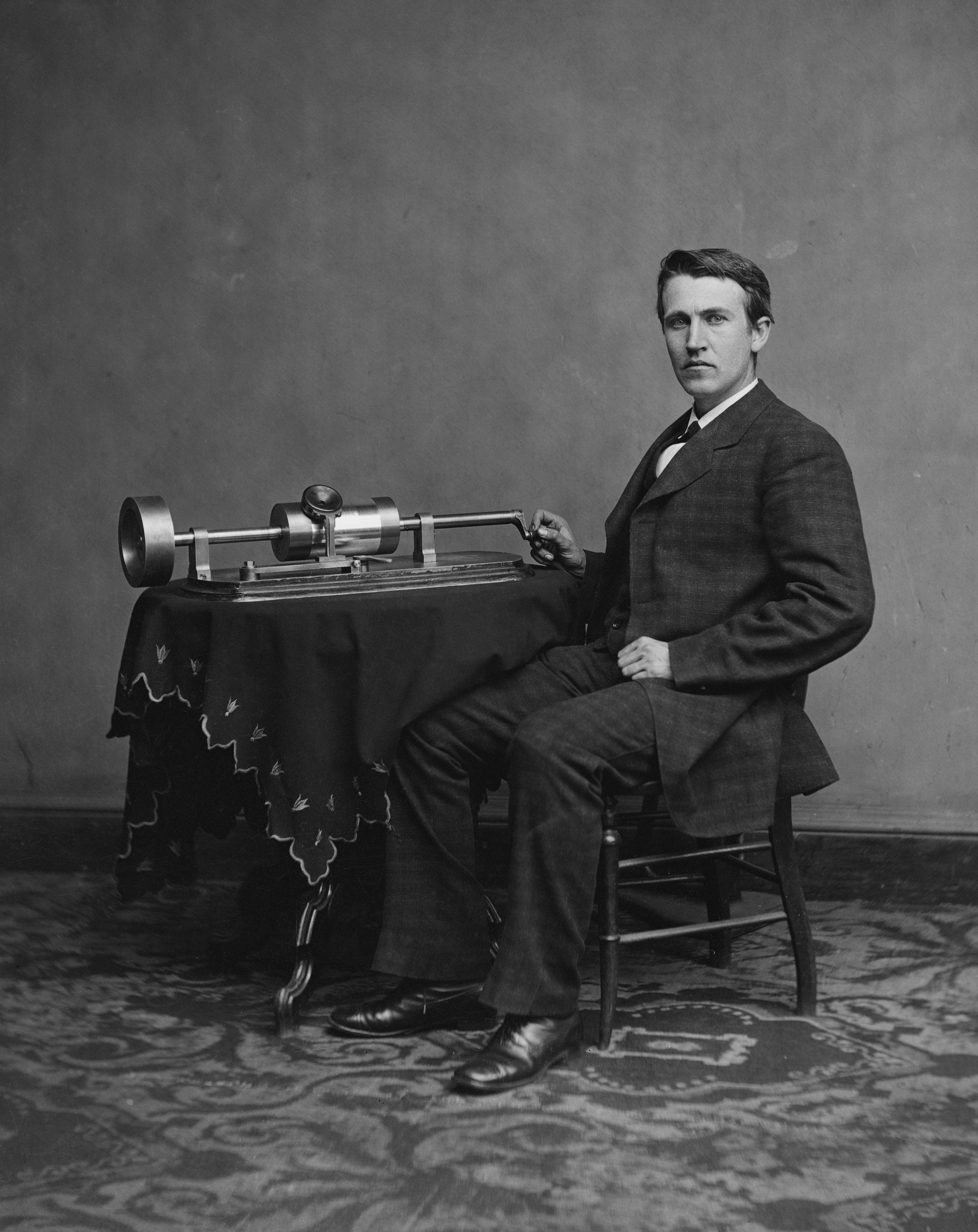One of the readings that I've most enjoyed in the last few weeks was Matthew Rubery's "Canned Literature: The Book After Edison". After Thomas Edison recorded sound for the first time in 1878, speculation began over whether an entire novel could be recorded. Even though recorded literature was a decade away and full-length book recordings would only emerge in the 1930s, writes Rubery, "the advent of phonograph technology made it possible to conceive of a recorded book" (216).
 |
Thomas Edison and phonograph
(https://upload.wikimedia.org/wikipedia/commons/0/03/Edison_and_phonograph_edit1.jpg) |
There have been multiple gamechangers throughout the history of books, including the invention of movable type, but I think if I were to go back in time I would want to go to the late 19th century. According to Rubery, the
New York Times was cynically predicting the end of print and the rise of "bottled orations" (218) while quirky academics and writers were imagining books as whispering machines that sound a lot like ipods or smart phones.
My message about the future of the book would be that it can't be understood as finite paradigm shifts, through which an existing concept dies to make way for a revolutionary one. Rather, the introduction of new forms of the book co-exist to offer us different ways of experiencing text. Audiobooks first appeared as records, then tapes and cds, and now as digital files. Libraries even carry discreet self-contained Playaways (in which you plug in your headphones to each separate 'book').
 |
| playaway.com |
This has not led to the eradication of print books, and neither have ebooks or apps. It merely broadens the interactions possible. A few
posts ago, I complained about ebooks but said that I do read both print and audiobooks. In class, we tried out interactive apps for
The Wasteland and
Alice in Wonderland. They were kind of cool, but I saw them as supplements. I personally wouldn't really want to read either of those texts for the first time through the app because it was so externally curated, and kind of distracting. However, I'm going to end on a positive note. I think the future of the book is huge and inclusive and there is as much room for audiobooks and distracting apps as there is for paperbacks and comic books and old weathered tomes.
Works Cited:
Ruberry, Matthew. "Canned Literature: the Book After Edison." Book History 16 (2013): 215-45.

I really like your message regarding how old processes and technologies are not unceremoniously shoved to the wayside when new and interesting interpretations to the same work are presented. I think that is one of the core takeaways from this course (at least, in my opinion). One of the most common themes we have discussed through blog posts and in-class discussion is that the future of the book does not depend on the destruction of its past or history. And I like the example of e-books! It's an underutilized resource that has plenty of potential and applications.
ReplyDeleteAnd by 'e-books', I meant 'audio-books'. (It's weird that users cannot edit published comments...)
DeleteI agree with Ashley's sentiment (and yours as well, Chrissy) that there is room for various medium for a particular story to be told. What I find interesting about today's imaginations and narratives around ebooks, reading apps, and audiobooks is how it differs from popular imaginaries concerning the phonograph. The number of applications imagined for the phonograph genuinely excited almost everyone and there were very powerful narratives around how humans would "read" aurally to the disappearance of the book. I think today the excitement around new "reading" technologies is more subdued and doesn't capture the imaginations of people as readily. Chrissy, I think you are right to show that there is a more nuanced embrace of new technologies for reading today through the sentiments that you express.
ReplyDelete